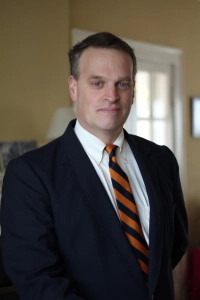When we teach children throughout the world that a noun is a name that signifies a “person place or thing” and a verb is a word that signifies an “action or event or state of being,” do we think that we have done them a service? Or do we think that we have just borrowed a little time to stall their minds until we come up with more satisfactory definitions?
How long does it take for the average clever student to realize that “actions, events or states of being” are all “things?” ‘To run’ is a thing and so is ‘to sleep.’ Therefore to run and to sleep are nouns?
Perhaps the majority of students learn these definitions and carry them throughout life without realizing the mistake- or at best half truth that is implied in them.
These definitions appear to be purely functional….sort of. Perhaps they bring the mind closer to the truth but they ultimately fail.
It is not a virtue to live an entire life contented with half truths – as if the mind has been lulled to sleep and feels as if it knows when it does not know.
One begins to wonder whether it is important to know what a noun is and what a verb is?
On the other hand I would think that a wise person would at least know or want to know the difference. Given that nouns and verbs are the fundamental words by which we describe the entire world, angels and the Trinity, it sure would be nice to know what they are precisely. Or do we propose that a student is successfully educated who obtains a high school or college degree without knowing the difference?
What is the answer and how might one learn what a noun is and what a verb is? Or do we care?
Hmmmm….maybe a Liberal education would provide the answer.





Similarly, I’d have expected more clarity since – surely – the bright Lyceum student (who knew the nature of a noun) would have pointed out that the NOUNS used in the DEFINITION of a verb were, naturally, nouns and not verbs themselves.
Likewise, “‘To run’ is a thing and so is ‘to sleep.’ Therefore to run and to sleep are nouns?” in my school, at least, we learned about ALL of the parts of speech, so no one was forced to think that a gerund or participle was, simply, a noun or verb. Does Lyceum teach differently, or is this just the worst assumed of other denominations of parts of speech and other methods?
I thought that the Liberal Arts taught one (to attempt, at least) to present opposing views in their best light – if not in the precise light that their own creators would have!
Cheers,
Thanks again Jonathan,
I am pleased that someone finally took the time to read this post even to disagree with it.
But I am perplexed by what you are saying here. My point in this post is that it appears to me that the definitions of nouns and verbs (i.e. definitions- that say what the things are) are no longer taught in the schools and I have a suspicion that they haven’t been taught in the schools (with rare exception) since perhaps the thirteenth century. I do happen to know one college where the students actually do read Martin of Denmark’s “De Modis Significandi.”
In the post I am claiming that the nature of what the parts of speech are (i.e. their definitions) have been lost and forgotten- and in the place of the formal definitions we now have almost purely “functional” definitions all of which utimately collapse upon serious consideration.
This is not surprising – the liberal arts themselves have endured an almost complete collapse in place of a more “functional” education.
We could have the same discussion about Geometry and Arithmetic as well. It used to be that students would learn what a number is, or what a right angle is. Nowadays, these things are only studied for purely functional reasons.